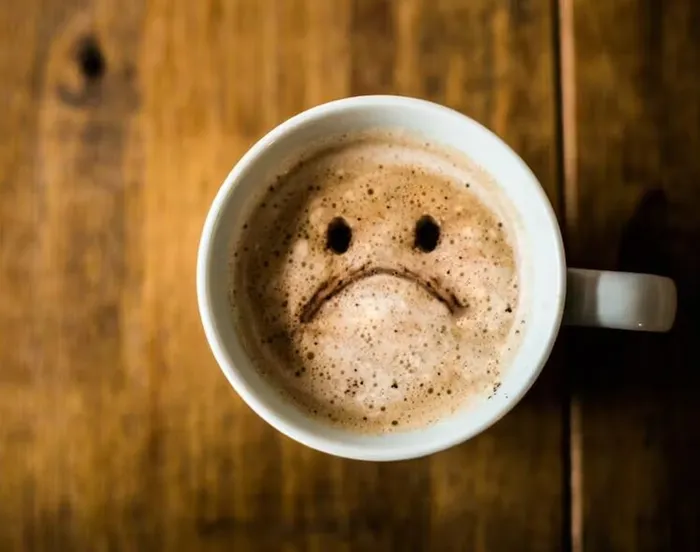Unpacking why SA’s coffee prices are too hot to handle

In a “Business Report” interview, Paul Makube, a senior agricultural economist at FNB, warned that locally a weaker exchange rate might even worsen the cost of enjoying this much-loved beverage. Photo: File
The price of coffee has become too hot for most South African consumers as global conflicts, logistics challenges and delays in deliveries of product to world markets have ramped up its cost.
In a “Business Report” interview, Paul Makube, a senior agricultural economist at FNB, warned that locally a weaker exchange rate might even worsen the cost of enjoying this much-loved beverage.
This as the rand traded in the low R18.80s against the dollar yesterday morning, according to Reezwana Sumad, a research analyst at Nedbank, commenting in a CIB Market snapshot yesterday.
Makube said the recent spike in international coffee prices was directly linked to the geopolitical tensions in the Red Sea, which saw attacks on shipping vessels disrupting trade flows.
“Delays in delivery and cost escalations for shipping companies saw container freight rates for the Asia-Europe routes rising by almost 150% as major producers such as Vietnam and Indonesia had to detour down to Africa through the Cape,” Makube said.
Beyond that, global stocks have been relatively tight as the adverse El Niño-induced inclement weather denuded yields in South-East Asia, with Indonesia’s robusta production falling by almost 20% year-on-year (y/y), and Vietnam’s stock plunging to an eight-year low.
He said: “This placed upward pressure on coffee futures prices as Vietnam is the world’s largest robusta producer with Brazil and Indonesia coming in second and third, respectively.
“Global coffee ending stocks have been on a downward trend since the 202/21 marketing season and are expected to contract further to a 12-year low of 26.5 million bags, according to estimates from the US Department of Agriculture (USDA),” Makube said.
At $190.50 against the pound, the recent coffee futures were 10% higher relative to the same period in 2023 and 31% above the 2023 low for the commodity.
However, Makube said this was was still way below the three-year high of $247.73/pound recorded at the beginning of the Russia-Ukraine war in 2022.
Nonetheless, not all was gloomy as the world production for the 2023/24 season was projected up 6.9 million bags y/y to 171.4 million bags (60kg bags) on the back of a rebound in production in Brazil, Colombia, and Ethiopia which more than offset output reduction for Indonesia (USDA).
In Brazil, the 2023/24 harvest forecast was pegged at 66.3 million bags which was up 3.7 million bags y/y for total arabica and robusta production.
“Following a 3% drop in production in the 2022/23 season, Africa’s production will see a sharp rebound of 11% y/y led by Cote d’Ivoire (+28.6% y/y), Tanzania (20.5% y/y), and Ethiopia (14.4% y/y) with the latter retaining the lion’s share (43%) of total production in the region,” Makube said.
SA’s consumption
In South Africa, instant coffee prices hover under R200 depending on the brand. It has become common to see local retailers, Shoprite, Pick n Pay, Spar, Food Lover’s Market, among others, run specials on this commodity to attract consumers looking for a good bargain to their stores.
Eighty20, a company that analyses data, last year released a report on local coffee consumption.
“The MAPS dataset, surveying more than 20 000 South Africans, gives insight into local coffee consumption behaviour. Approximately 21.7 million people (two-thirds of our adult population) start their day with a cup of coffee. The survey segments that consumption into several caffeinated categories, with the most popular being instant coffee with a whopping daily consumption by 19.8 million South Africans,” it found.
And according to an article published by Fitch Solutions in March last year, “South Africa Coffee Spending Trends & Developments: Mass Coffee Proliferation And Premiumisation Playing Out Simultaneously”, coffee consumption in South Africa is dominated by the low-cost instant coffee market among higher income earning households, more premium coffee trends were emerging.
For coffee retailers and manufacturers, South Africa’s vibrant café and coffee bar culture was growing substantially.
“Furthermore, local and international tourism is adding to the growth of independent and artisanal coffee roasters. Convenience plays a key role in coffee spending for the majority of South African consumers, with established coffee chains targeting fuelling station forecourts, as the next step in reaching new consumers,” the report noted.
BUSINESS REPORT